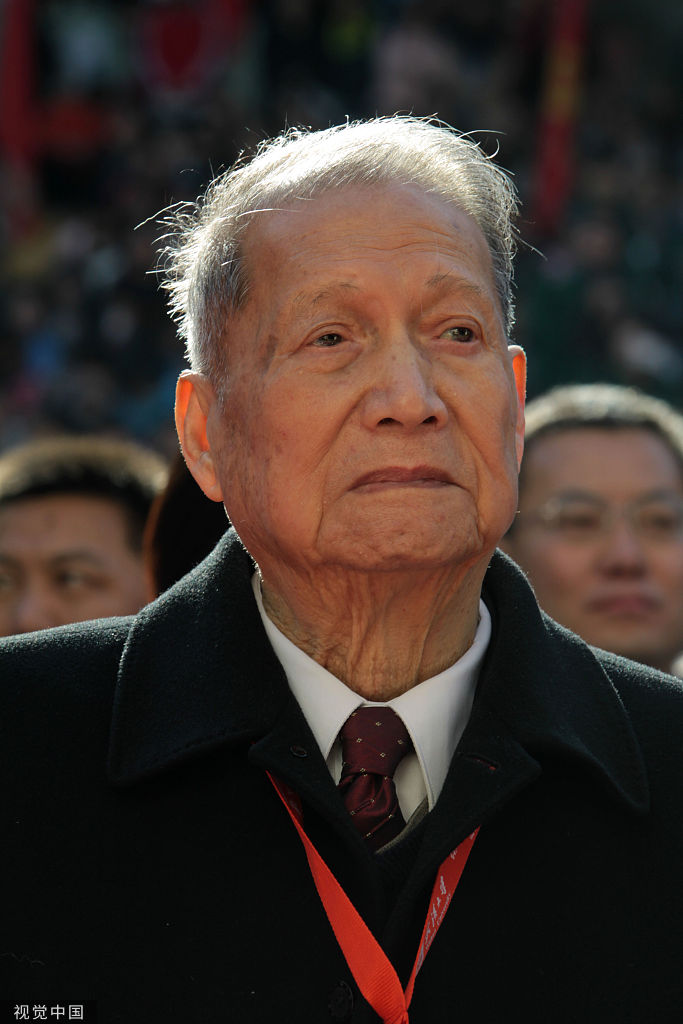Public academic remembered after his death at 89


Although it happened 17 days days ago, Yuan Xuefen is still moved by what she saw at Zhuo Renxi's funeral, a chemist and academician of the Chinese Academy of Sciences, in Wuhan, Hubei province on Aug 12.
"So many important people attended the funeral and many wept," she said.
Zhuo, one of the founders of the Chinese bio-medical polymer material sector, died at the age of 89 in Wuhan on Aug 6.
Zhuo's family told Yuan, a friend and professor of English at South-Central University for Nationalities in Wuhan, he suffered from diabetes but died of a heart disease unexpectedly.
Zhuo's sudden death has been grieved by both his family and friends.
Soon after they learned the news, Yuan and Pan Yin, Wuhan University alumni, braved the scorching summer heat to visit Zhuo's home at the university, giving their condolences on behalf classmates who studied in the department of English at the university from 1982-1986.
They found that Zhuo's home was thronged with mourners of all ages who paid their respects for Zhuo's demeanor, knowledge, contribution to the country, and his principles.
A native of Xiamen, Fujian province, Zhuo graduated from Fudan University in Shanghai in 1953 and worked at Wuhan University till his retirement last December.
Zhuo belonged to the first generation of scientists nurtured by the People's Republic of China founded in 1949, according to his funeral committee at Wuhan University.
Zhuo devoted his lifetime to the research of silicone chemistry and bio-medical polymer, solving many problems related to national defense and people's livelihoods, the committee said.
In 1972, an army unit asked Wuhan University to help solve the problem of soldiers not being able to see the mirrors of cannons or telescopes in fog.
Zhuo thought fogging appeared on optical glass and affected transparency because the glass was corroded. If a thin and transparent hydrophobic molecule film was covered on the glass surface, an anti-fog effect could be achieved, he found.
He created an optical glass anti-fogging agent as a protective coating for a variety of optical devices, greatly improving the performance of the country's military equipment.
In 1976, he developed an anti-fogging agent for Mao Zedong's crystal coffin, which is in the Chairman Mao Memorial Hall at Tiananmen Square in Beijing.
In the 1990s, many large Chinese hospitals introduced MRI equipment. But the equipment's imported contrast medium was very expensive, with one injection of 20 milliliters costing 2,000 yuan ($284).
To mitigate patients' costs, Zhuo led a research team to quickly synthesize a contrast medium as good as the imported one, but costing less than 100 yuan per injection.
Zhuo was known as a man of integrity.
Once Yuan asked a neighbor who worked in a department in charge of equipment purchases at Wuhan University whether he knew Zhuo. The neighbor replied everybody in the department knew Zhuo.
"To prevent purchasers from buying equipment at prices higher than the cost and wasting State funds, Zhuo would check the price himself, the neighbor said," Yuan said.
- China's Long March 8A rocket launches new satellite group
- HK bets on integrated hub to enhance TCM profile
- China widens net in battle against graft
- New US dietary guidelines trigger widespread concern
- China eyes space leap with record satellite filings
- Team formed to investigate the loss of 29 cultural relics





































